There have been various great scams in history and football as entertaining as it is, is not left out. From players conning clubs to sign them up, to teams swindling each other, match-fixing, agent frauds amongst others.
Football is a lucrative sport with a lot of financial benefits on offer for all stakeholders. Most youngsters always dream of making a career out of professional football but not all always make it to the top. While most will reluctantly accept their fate, some have mischievously devised various means to play the round-leather game professionally.
In this article, FootballOrbit brings you 5 of the greatest scams in football history.
Ali Dia
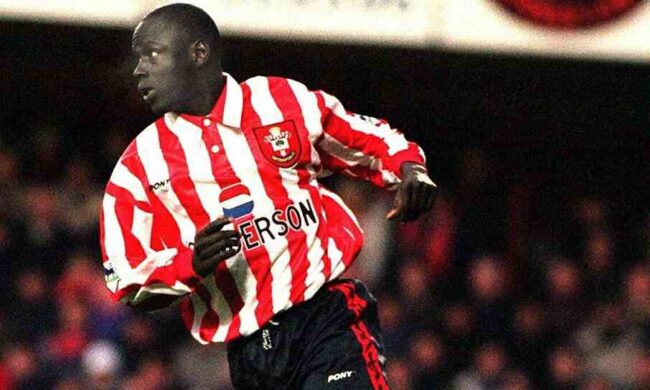
Ali Dia is one of the most amusing stories in football history. He conned his way to the top by asking a university friend (allegedly named Sidiba Alassana) to recommend him to clubs by pretending to be George Weah — the legendary former AC Milan player who won the Ballon d’Or in 1995.
This trick even earned Dia a move to Southampton and an appearance in the English Premier League!
Ali Dia started his career with some amateur French clubs before fraudulently securing a move to FinnPa, a first division club in Finland. After a few games, the club realised how terrible he was and released him.
He transferred to PK-35, another club in the country (Finland) and played just 3 games, scoring a goal before getting released.
Ali’s next stop was in Germany where he signed for Bundesliga 2 club, VfB Lubeck but was discharged after just two games.
But Ali wasn’t done. He had high ambitions and his next port of call was England.
Through his usual friend/”agent” and armed with his George Weah scam story, he contacted English clubs West Ham United and Port Vale requesting for a trial but the clubs outrightly rejected his request.
He persisted and managed to convince Bournemouth, Rotherham and Gillingham to offer him trials but failed to get a contract as the clubs considered him not good enough for professional football.
Dai finally secured a move to non-league side Blyth Spartans where he made just a single appearance as a substitute.
But he still had dreams of playing in the Premier League, so he contacted Southampton.
The then Southampton manager, Graeme Souness, was having a hard time at that period as the Saints were struggling. The manager’s desperation made him believed the Weah scam story from Ali’s impostor friend and he thought he had struck gold!
“Weah” allegedly told Souness that Dia was his cousin who had played for Paris Saint-Germain and had represented his country, Senegal, 13 times.
Dai was given a 1-month contract and handed the number 33 jersey.
On the 23rd of November 1996 in a Premier League match against Leeds United, Ali Dai was named on the bench as one of two strikers. In the 32nd minute, the first choice striker Matthew Le Tissier got injured and Dai replaced him! He played so bad that he was later substituted for a defender!
Leeds won the match 2–0.
“He ran around the pitch like Bambi on ice,”. “It was very, very embarrassing to watch. We were like: ‘What’s this geezer doing? He’s hopeless.’ Graeme named him as a sub and we couldn’t believe it. I got injured after 20 minutes and when I saw him warming up, I’m going: ‘Surely not?’ Graeme put him on and he was fucking hopeless, so he took him off again. It was crazy!”
Mattew Le Tissier on Ali Dia
“Ali Dia, he’s a liar, he’s a liar.” So goes the chant sung by Southampton fans in reference to their most infamous player.
14 days later, Dia was released by Southampton, having played for them for just 53 minutes!
After his release, he joined 5th tier side Gateshead, he scored and assisted on his debut but the next day, his Southampton hoax was exposed in the media.
After the story broke, Dia laughed off the allegations and even lied that he had recently scored for Senegal in a 3-1 1998 World Cup qualifying win over Guinea. However, this claim was not true as Senegal had already been knocked out in the first round of qualifying.
“I have been portrayed as a con man and a poor player, but I am neither and intend to prove people wrong. Obviously I’m disappointed not to have made it in the Premiership, but I’ve got faith in my own ability and my only concern now is Gateshead. My contract is just until the end of the season. But if things go well, who knows, I could stay longer.”
Ali Dia in response to his Southampton scam
At the end of the season, Gateshead released him.
After leaving Gateshead, he had a brief spell at Spennymoor United.
The Internet was just emerging at that period which means it wasn’t easy for clubs to investigate and coordinate things properly.
What is amazing about Ali Dia is the fact that in some of the clubs he joined, he was (or among) the highest earner(s) as he was considered as a star player.
In his short spells at Southampton and Gateshead, he pocketed £3,500 in signing-on fees. Souness later admitted that Southampton paid Dia about £2,000 for his 14 days at the club, while Dia received a £1,500 signing-on fee at Gateshead. He was also earning £400 per week at Gateshead!
Carlos Kaiser
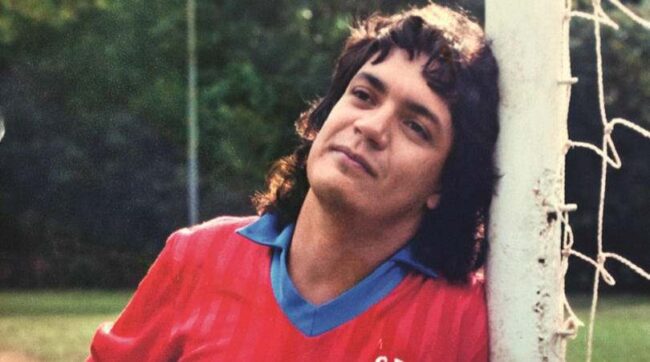
Carlos Kaiser whose real name is Carlos Henrique Raposo was a Brazilian striker who played for about 26 years and represented 10 clubs without ever making a single appearance!
He signed for Brazil’s biggest clubs like Botafogo, Flamengo, Fluminense and Vasco de Gama.
He was called “Kaiser” due to his resemblance with German football legend, Franz Beckenbauer.
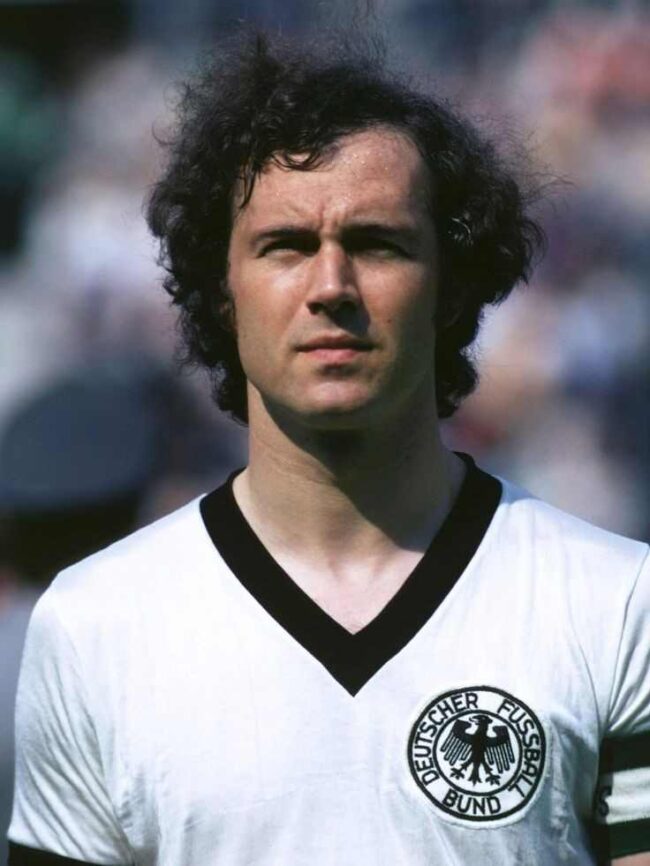
Kaiser “wanted to be a footballer, but did not want to play football”.
His fraud consisted of signing a short contract with a club and stating that he was lacking match fitness so that he would spend the first weeks training alone where he would shine. But whenever he had to train with other players, he would feign a hamstring injury; the technology at the time made it difficult to detect the fraud.
In the first training session, Kaiser usually suffered a muscle injury that would keep him out for an indefinite period!
He would also fraudulently obtain reports from a dentist with claims that he had focal infection whenever any club wanted to go further.
By following these steps, he managed to stay a few months at the various clubs just training and without ever being exposed as a fraud.
He would also pay journalists to write fictitious stories praising and adoring his football exploits.
One team became so frustrated with Kaiser’s injuries that they called in a witch doctor; Kaiser brusquely informed him that there are some things which even black magic cannot cure and sent the doctor away!
He would do anything to avoid playing or to win favour. He paid youth-team members to clatter him in training so that he could fake injury, and gave fans money to sing his name when the club owner was around!
Carlos Kaiser’s football journey
He started his youth career at Botafogo before joining Flamengo. He secured a move to Mexican side Puebla after impressing their scouts during a training session, but he wasn’t good enough as a professional player and was subsequently released.
But Kaiser will have non of that!
Instead, he returned to his native Brazil parading himself as an international superstar footballer and managed to build connections with the country’s REAL super star players — earning himself lucrative transfers in the process.
Amongst his various scam formats, he claimed that he had played in Argentina at Talleres de Córdoba and Independiente. He also lied that he was part of the squad that won both the 1984 Copa Libertadores and the 1984 Intercontinental Cup by portraying himself as Carlos Enrique, an Argentinian player who was genuinely part of the squad.
He even moved to Europe in 1986 and signed for French Division 2 club Gazélec Ajaccio. At his presentation, the club arranged a training session for the fans to see him, afraid of being caught, Kaiser deliberately shot ALL the balls to the crowd as souvenirs, while kissing the club’s badge!
With no balls left to play with, the team had to do their training that day without balls — and Carlos Kaiser once again escaped being exposed. Lol.
He barely played at the club and returned to Brazil the following year.
On his return to Brazil, he joined Bangu, where he again used his fake injury scam. However, Castor de Andrade, the club’s major sponsor and patron, became tired of seeing him just training without playing.
During one match, Castor instructed the coach to play him, as the team was losing 2–0. When Kaiser was sent to warm up, he came up with another trick to avoid playing…………
He saw a group of away supporters shouting abuses from the stands and used it as an excuse to start a brawl with the supporters and was immediately shown a red card. He was sent off before getting on the pitch!!!
(can’t stop laughing)
After the match, he lied to the patron that the supporters were abusing him (the patron) and calling him a thief while he considers the patron as a father and had to defend him. He was forgiven and even handed a six-month contract extension.
Carlos Kaiser was a charming and charismatic character whose words are like magic spells.
“His chat was so good that if you let him open his mouth, that would be it. He’d charm you. You couldn’t avoid it. That would be it.”
Bebeto, the World Cup-winning striker of 1994 on Carlos Kaiser
After his spell at Bangu, he represented the likes of Fluminense, Vasco da Gama, Botafogo among others.
Despite playing for some of Brazil’s top clubs, as well as other teams around the world, Carlos Henrique Raposo never stepped onto a pitch for more than two decades.
Amazingly, he kept up an illusion for about 26 years until he retired from professional football aged 41 – and went down in history as the star striker without a single goal to his name.
By the time he retired, Kaiser had passed through 10 top-flight clubs, with a set of statistics like no other in history: 0 appearances, 0 goals, 0 assists!!!
A movie was made to document his career with the title: Kaiser! The Greatest Footballer Never to Play Football.
Also, a book titled; Kaiser: The Greatest Footballer Never to Play Football written by a journalist Rob Smyth, was published in 2018.
DJ Dexter Rosales

Sometimes around 2012, Australian club Adelaide United announced trials for two foreign players on a Friday, but discovered on Monday that one of them – Dexter Rosales – never existed!
The club had been falsely informed that the player who had turned out for top clubs like Ajax, Valencia and River Plate will join them. Out of sheer excitement, the club publicly announced the BIG deal.
The player never arrived and after carrying out investigations, Adelaide United realised that the pictures and video highlights shown to them were that of Mauro Rosales and not Dexter Rosales.
Mauro Rosales — who was being impersonated — is an Argentine International who played for some top clubs.
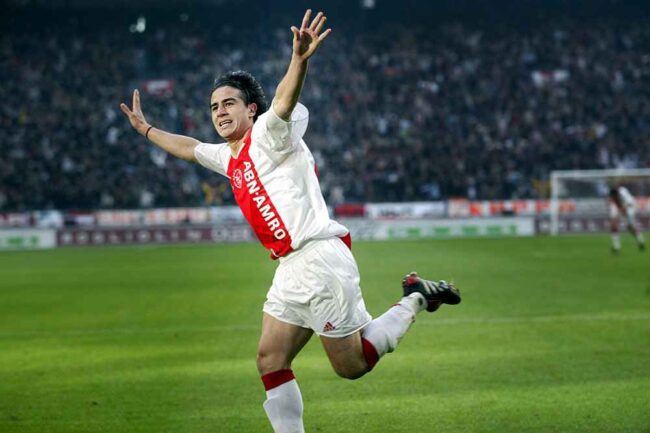
The sham was exposed when the club contacted Ajax, Valencia and River Plate.
“It has been a strange few days with all the speculation around this mystery man – it doesn’t look great from our end.” “We’re not the first club to be given a false lead with a supposed trialist, but other clubs probably just don’t promote it to the world like we did.”
Adelaide United’s statement on the Dexter Rosales saga
It turned out that the player that was almost fraudulently sold to Adelaide as Dexter Rosales was actually a DJ who goes by the name Dexter Rosa Monsalve!
He also insisted that he actually played for “Ajax” but it was not the Dutch Eredivise giants but a club in Florida known as Ajax Orlando Prospects!
It turns out that it was a youth club that is no longer in operation, meaning, Monsalve has never played professional football!!!
Bahrain plays against FAKE Togo national team!

Ahead of a regional international tournament, Bahrain organised a friendly match with Togo and the West African country’s players travelled a long distance of 3,500 miles to the Arabian Gulf.
Bahrain easily won the match 3-0, which was unusual enough for Bahrain that it made the team suspicious.
Josef Hickersberger, Bahrain’s Austrian coach, noted in surprise that the Togo players “were not fit enough to play 90 minutes.”
When word of the match got back to Africa, the Togolese soccer authorities were shocked. “The players who took part in the friendly against Bahrain were completely fake!” thundered Gen. Seyi Memene, the President of Togo’s soccer federation. “We have not sent any team of footballers to Bahrain!”
Wow!
After due investigation, it was discovered that Tchanile Bana, a former Togo national team head coach was responsible for the fraud. He had gone behind the federation to organise the match against Bahrain (who happily spent a lot of money for the game to hold) and fielded non-professional and fake players.
Furthermore, Tchanile Bana was already on a two-year suspension for taking another fake team to a tournament in Egypt!!!
He confessed that he had acted alone on his own and apologized, but he got banned from the game for an additional three years.
Alessandro Zarelli
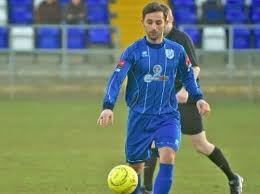
Alessandro Zarelli gained notoriety in the United Kingdom for featuring on the 2006 Sky TV one off-documentary Super Fakes which exposed his efforts in attempting to scam football clubs in Northern Ireland and Wales into signing him.
The Italian paraded himself around to clubs in Northern Ireland and Wales by claiming to be a Glasgow Rangers and Sheffield Wednesday academy graduate.
In reality, Zarelli was a gambler who played a hand full of youth football games for Italian lower division side A.C.D Asti.
Zarelli’s audacious claims paid off and he was signed on a brief deal by Lisburn Distillery in Northern Ireland’s first division before being released soon after when the club discovered how terrible he was as a player.
He then contacted Welsh Premier League side Bangor City in July 2005, who were unaware of his previous exploits in Northern Ireland, but after staying with the club for 10 days, manager Peter Davenport contacted Mike Rigg who worked for Zarrelli’s supposed former club Sheffield Wednesday.
Rigg said that they had never heard of him, equally, Rangers also confirmed that they had no knowledge of the player ever being on their books.
Antonelli Valenti of the Italian Football Federation said Zarrelli’s name appeared nowhere on the association’s database at any level.
Zarelli also had a brief spell with Connah’s Quay Nomads where he was once again found out.
After being exposed by the TV show, the smooth-talking Italian took it up in his stride and rode on his new found fame.
He went on to play for 25 clubs at semi-professional level in England and Scotland before his unfortunate death in a car accident in 2018, aged 34.


